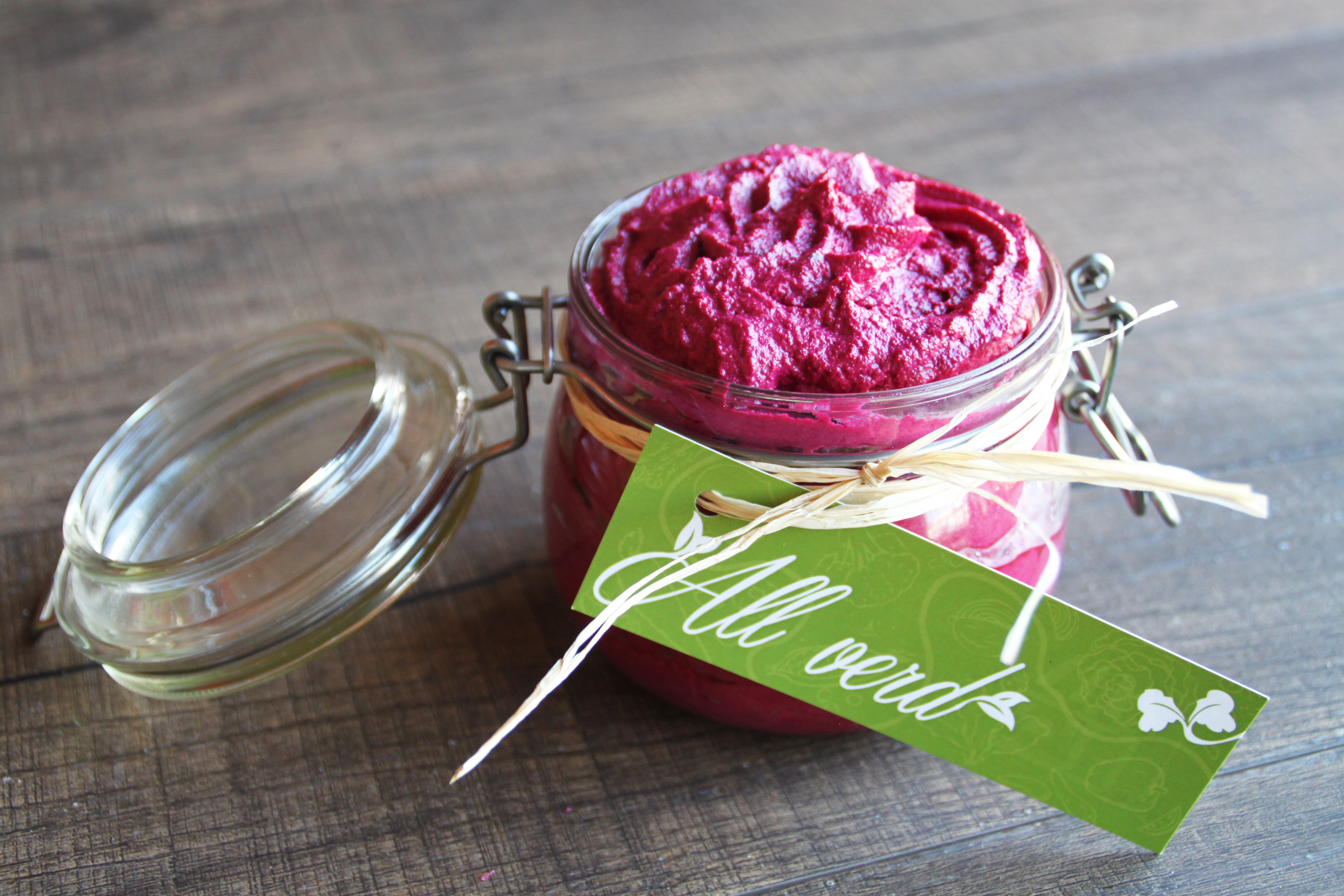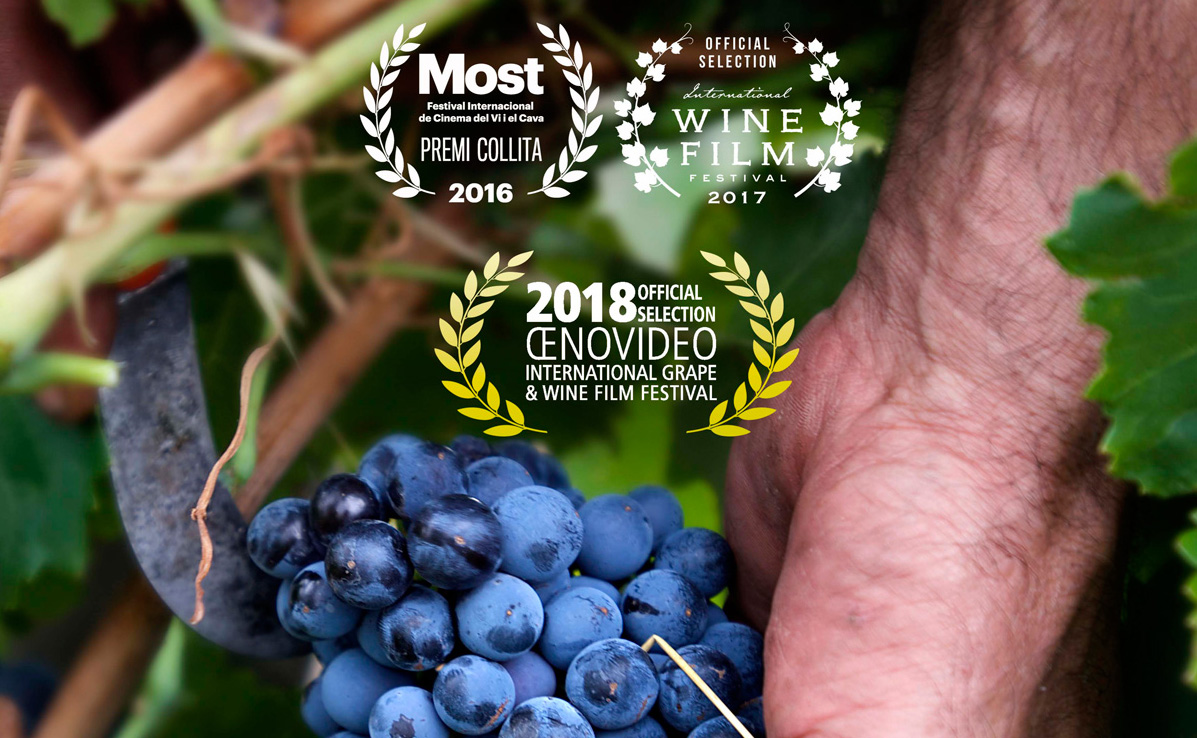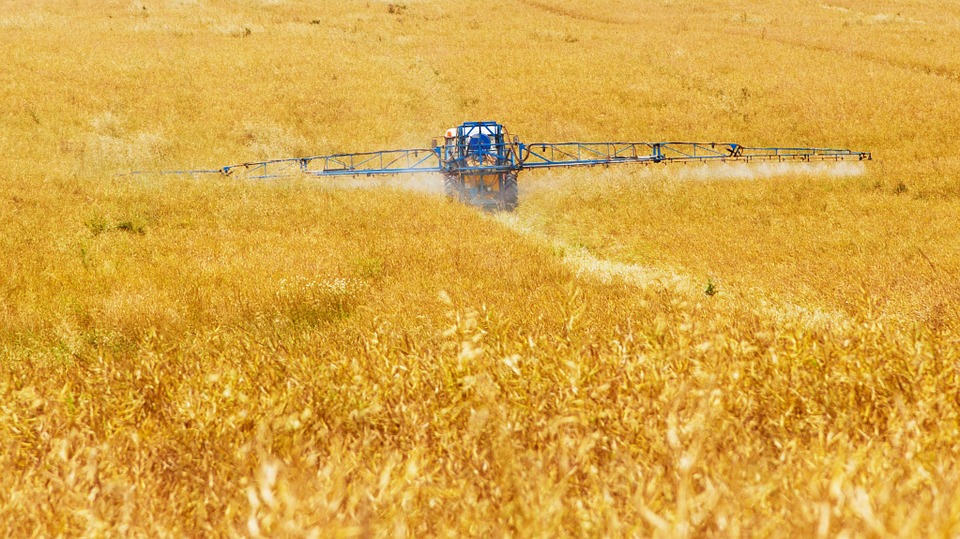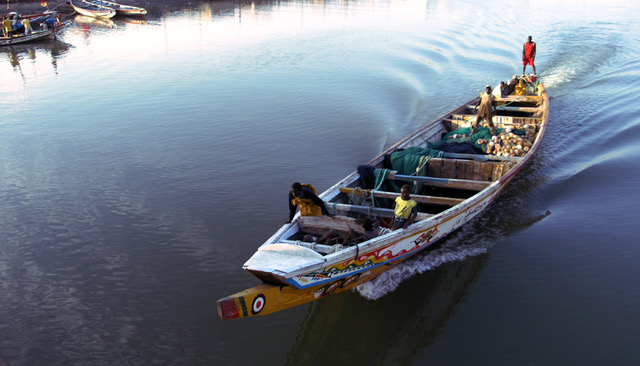Doing it for the pleasure of caring for ourselves and finding a balance, without restrictions or feelings of guilt.
A healthy relationship with food, making the most of seasonal produce and letting creativity into our kitchen, even if it's only for the lunch box we take to work.
We’ll try, using uncomplicated recipes, tastes, aromas and colours. We'll emphasise the importance of colour in our dishes.
Emotions and healthy eating go hand in hand.
Sustainable Food Citizen Week
Video resum de la Setmana Ciutadana de l'Alimentació Sostenible 2021
The activities of the Sustainable Food Citizen Week
Sustainable Food Citizen Week provides an opportunity to understand the relationship between food habits and cross-cutting aspects such as the climate emergency, local economic development, culture, politics, social rights and health. A week dedicated to citizens, in which you will achieve knowledge, reflection and debate about the main issues of the following activities.
Gastronomic heritage
- October 21st - 18.00 HBetevé broadcastingTelevised cooking workshop
- October 22nd - 22.00 H (variable according to betevé programming)Betevé broadcastingDocumentary film season
Documentary on natural wine in Spain. A trip from the north to the south of the country, with the vineyard and wine as the background.
A reflection on natural wine from its producers and opinions from renowned sommeliers.
This activity is part of Betevé's documentary film season, including the films Fermentación espontánea, Taste the waste, Food for change and Il mare piange.So you can combine the documentary with a wine tasting at home, we provide you with a list of wines by order (and time) of appearance.
Minute 01 – Sparkling wine from an ancestral method made in the Alt Empordà. Sparkling wine with unique fermentation.
Minute 05- Red wine from the mountains, made on the north side of the Alpujarra in Granada.
Minute 10 – Mineral and fresh wines made in the Sierra de Gredos (Avila), mainly with Garnacha, also with local white varieties such as Chelva, Albilla Real and Malvar.
Minute 13 – Red wine from the Sierra de l’Albera, in the Alt Empordà, made with Garnacha and Carignan (Lledoner and Samsó).
Minute 16 – White wine with maceration of the skins (orange wine) from Penedès made with Xarello from old vines worked within biodynamic parameters.
Minute 19 – Light red wine made with Sumoll, a native grape of the Penedès. From vineyards surrounded by forests of the Alt Penedès.
Minute 23 - Red wine from Galicia from a heroic viticulture of micro-plots in the Ribera Sacra area.
Minute 27 - White wine from the La Mancha variety and the most planted in the peninsula: Airén, in this case, comes from very old, free standing vineyards.
Minute 31 - Terra Alta red wine, inland Catalonia. From a dry and warm area, with powerful aroma and flavour.
Minute 36 - Wine with Mediterranean expression, made in clay vats in the region of Murcia, from the Tintorera Garnacha grape variety.
Minute 38 - White wine from Montepila grapes from vineyards surrounded by olive trees in Cordoba. - October 29 and 30 from 12.00 to 23.30 H, and October 31 from 12.00 to 22.30 HLa Rambla de Barcelona (between Centre d'Art Santa Mònica and Colom)Market
“Terra i gust” is a gastronomic project that links restaurants with small producers, an initiative from Barcelona City Council and organized by Gastronomia de Proximitat and Slow Food Barcelona, with the support of the Association of Gastronomy and Tourism of Baix Llobregat and l’Hospitalet.
It will be a place for citizens to see the different stakeholders involved in the value chain of local products and sustainability, and to point out the importance of the small artisanal producer, of maintaining traditions and environmentally friendly techniques, highlighting the union with gastronomy.There will be various different spaces:
- Spaces for sustainable gastronomy
- Spaces for beverages, with the participation of the Barcelona Beer Festival, with a selection of craft beers. Natural wines, filtered water, and kombucha will also be served.
- Producers market with seasonal and ecological products.
- There will also be an area for cooking shows, talks and games for kids-
Waste vs Good use
- October 16th - 10.00 H / 11.00 H / 12.00 h / 13.00 HParc de la BarcelonetaWorkshop
At the edible crockery workshop, children will create their own seasonal spoons, bowls and glasses using domestic technologies, with fruit and vegetables as their materials.
The aim is to offer children and parents a fun, creative activity that involves healthy food.
At the workshop, the children explore the shapes, textures, colours, aromas and tastes of the vegetables, learning concepts such as seasonal produce, location, ecology and properties of the fruit and vegetables. At the same time, the workshop fosters the introduction of these foodstuffs in their daily diets. - October 16 - 14.00 HParc de la BarcelonetaCulinary experience
A free, best-use meal to raise people's awareness about the value of food, preventing food waste and making the best use of food. 200 menus will be served, made using recovered food and a plenty of creativity! Parc de la Barceloneta will become an amplifier for the people and projects that work towards reducing food waste, making the most of food and achieving zero waste. The recovered food is the star of the show! The other ingredient: volunteers. The kitchen will be humming thanks to a team of volunteers who make it possible to recover surplus food, cook and serve the dishes. The selection, cleaning and preparation of all the recovered food is carried out in a fun, relaxed atmosphere. Everyone is welcome! On the same day, we will also be offering recovered food that hasn't been used by the kitchen, at an “adoption stall”, as a donation and act of joint responsibility towards the value of the product.
We hereby inform you that we cannot guarantee that the meals served during this event are free of substances that may cause some type of allergy or food intolerance.
- October 17th - 20.00 HPlaça ReialShow
At the improshow we play with knowledge about food, sustainability and the climate emergency. We’ll be improvising everyday situations connected with sustainable food and local organisations, through humour and based on audience suggestions.
An innovative experience in which the audience will become the authors of stories that are surprising, exciting and fun.
Urban rurality and biodiversity
- October 14th - 19.30 HPlaça de Sant JaumeShow
The start off the week will be a chorus, musical, and participative. Having their say will be the real heroes of sustainable food, those involved in the food cycle: the fishermen, drivers, chefs, farmers, ranchers, market vendors. The speech will be intertwined with the large mechanical orchestra of Cabo San Roque, distributed in the form of a sound mural in front of the City Hall, along with the active participation of the public, in a collective musical creation composed especially for the occasion. A show that highlights all the participants behind the food supply network and gives them a voice.
- Scenography and musical composition: Cabo San Roque
- Stage direction and coordination: Edi Pou
- Idea and concept: Virginia Angulo / Martín Garber
- October 16th from 10.00 to 12.00 HPlaça ReialWorkshop
We begin the workshop by presenting a suitcase with a wide-ranging biodiversity of seeds, some of which are local varieties. We then introduce the clay bomb technique for regenerating areas and helping life to grow.
Participants can make their own seed bombs, which they take home after the workshop.
The activity runs from 10 am to 12 noon, in sessions that begin every half hour and last 20-25 minutes. - October 16th - 12.00 HJardí dels TarongersTalk
Interdependence, symbiosis and antagonism. An approach to food production from the rural and city perspectives.
Making the urban setting rural in three ways: production, environment and values. Understanding urbanised spaces as producers of biodiversity, health and food, as well as natural spaces. Understanding the rural setting as a live space and one which gives life, not a space which consumes nor which is consumed, without us feeling linked in some real way to its values and rhythms.
Ecological footprint
- October 17th - 13.00 HPlaça del ReiTalk
Talk looking at all the most common stages of the life cycle of our food. From the farm to the table, we’ll be pondering the carbon footprint of agriculture, packaging, logistics, cooking, organic waste etc. The overall goal is to provide information for deciding on food which has a lower impact in terms of greenhouse gas emissions. The session will also stress the contradictions in environmental communication for consumers.
- 17th October 13.30 hPlaça del ReiTalk
What are the impacts of our food system on our planet? How does this affect the peasantry, our territory and the communities of the global south? What role does the food industry play? What can we do as consumers? What is the role and situation of women, who have traditionally fed the world? On all these issues, we offer you an exciting dialogue with Vandana Shiva (Indian climate activist, graduate in physics, philosopher, ecologist, feminist and author of more than twenty books and 300 articles in the world's most prestigious scientific journals) and Esther Vivas ( activist, researcher in social movements and agricultural and food policies, degree in journalism and diploma in higher studies in sociology from the Autonomous University of Barcelona).
- October 17th - 17.30 HPlaça del ReiRound table
The current industrial agri-food system generates a series of environmental conflicts that are manifested through struggles and mobilisations in response to the impact this system has on the environment and society. These conflicts are mainly associated with the defence of environmental conditions or equal access and distribution of natural resources, often occurring in production and transit areas, and ultimately affecting the regions and communities where they happen. They often reveal conflicting interests, different development paradigms, and aspects related to involvement in decision-making.
The aim of this roundtable is to address some of the main current socio-environmental conflicts in Catalonia, arising from the food system, and to understand the causes and impacts both in Catalonia and the Global South, in order to make them visible, encourage dialogue and provide possible solutions or alternatives.
Proximity
- October 17th - 16.00 HParc de la BarcelonetaShow
This show reflects the result of the last fifteen years this quintet's career, in which they have further explored their own style using organic, natural instruments with a grass-roots and contemporary language.
The concert revolves around organic instruments made from materials found in nature. Once they have been crafted, respecting the natural material, they generate melodies with a unique sound.
The stars of the show are the oak-wood and slate txalapartas, percussion instruments using wood from the desert and pipes. We will also hear a clarinet made from bamboo, whose sound creates atmospheric base lines that enhance the other instruments.
- October 17th - 17.30 HParc de la BarcelonetaRound table
Challenges and opportunities for multiplying and consolidating transformational food networks
There has been a significant increase in initiatives, over the last few years, which attempt to facilitate and ensure widespread access to organic and local food, taking the needs of the area's farmers into account. Central purchasing bodies, farmers’ distribution networks and new consumption cooperatives with shops (also known as cooperative supermarkets) are just a few examples of these.
The main goal of these projects is to provide a greater diversity of consumer profiles with access to these types of products. To do that, they aim to overcome the obstacles that prices and physical accessibility represent. They also aim to help improve the viability of the initiatives of farmers who work with agro-ecological values and practices.The aim of the session is to discover various types of initiatives for distributing organic and local food and to reflect on what the key elements are that can help to multiply and consolidate transformational food networks. Taking part in this will be members of Germinando involved in GIASAT (Gestión Integral Agroecológica de los Sistemas Alimentarios Territorializados), VallaEcolid, the Barcelona Local Agri-Food Exchange Centre (CIAP), promoted by the Farmers’ Union, and the Quèviure and Economat Social cooperatives.
- October 17th - 20.00 HParc de la BarcelonetaScreening
Sixty years of standardised fruit and vegetable production and the creation of industrial hybrids have had a dramatic impact on their nutritional content. In the last 50 years, they have lost 27% of their vitamin C and almost half their iron. The tomato, for example: through multiple hybridisations, scientists are constantly producing redder, smoother, and firmer fruits. In the process, however, a quarter of the calcium and more than half of the vitamins have been lost.
The seeds that give rise to the fruits and vegetables we eat are now owned by a handful of multinationals, such as Bayer and Dow-Dupont. These multinationals produce their seeds mainly in India, where workers earn just a few rupees, while the company has a turnover of more than 2 billion euros. A globalised business where seeds are more expensive than gold. According to the FAO, 75% of cultivated varieties have disappeared in the last 100 years.
Loss of nutrients, privatization of life. This documentary presents the great monopoly of the industry on our fruits and vegetables.
More week
- October 14th from 15.00 to 20.10 HUniversity of Barcelona, historic building, Aula Magna, first floorTalk
As part of the goals of the Barcelona 2021 World Capital of Sustainable Food, and to help promote a transition towards food sustainability, combining people's health with the planet's health, the conference aims to raise awareness about the need for this transition, as well as discussing scientific data and the projects that are being carried out in this field.
The conference is on the future of food: how to combine health and sustainability. It aims to combine experience with academic knowledge, civil society and public institutions, in a reflective debate on the challenges facing us in our move towards 5S food (Salubrious, Sustainable, Safe, Social and Satisfactory), with speeches, roundtables and debates concerning diets and health, the impact of climate change on food systems, agroecology and ecological food, equity, biodiversity and food safety and their socio-economic impact. It will also discuss the subjects of food equity, the right to food and perspectives on food vulnerability, as well as the environmental impact of food and diets, food waste and the added value of local produce as being good for the planet and for strengthening local economies.
The conference will be taking place on 13 October, from 4 to 8 pm, and on 14 October, from 3 to 8:10 pm. - October 14th - 19.30 HPlaça de Sant JaumeShow
The start off the week will be a chorus, musical, and participative. Having their say will be the real heroes of sustainable food, those involved in the food cycle: the fishermen, drivers, chefs, farmers, ranchers, market vendors. The speech will be intertwined with the large mechanical orchestra of Cabo San Roque, distributed in the form of a sound mural in front of the City Hall, along with the active participation of the public, in a collective musical creation composed especially for the occasion. A show that highlights all the participants behind the food supply network and gives them a voice.
- Scenography and musical composition: Cabo San Roque
- Stage direction and coordination: Edi Pou
- Idea and concept: Virginia Angulo / Martín Garber
- October 15th from 10.00 to 12.00 HMercabarna - 5a planta, recepció centre directiuVisit / Tour
We offer you the chance to discover all the secrets of this market, located in a sustainable, energy-efficient building and exclusively dedicated to the sale of bio produce.
Mercabarna houses the first wholesale market for fresh ecological food in Spain, a firm commitment to furthering the commercialisation of this type of food and facilitating its distribution. The initiative is in response to one of the stated goals of the “Barcelona Eats Sustainably” strategy and the 2021 World Capital of Sustainable Food.






















